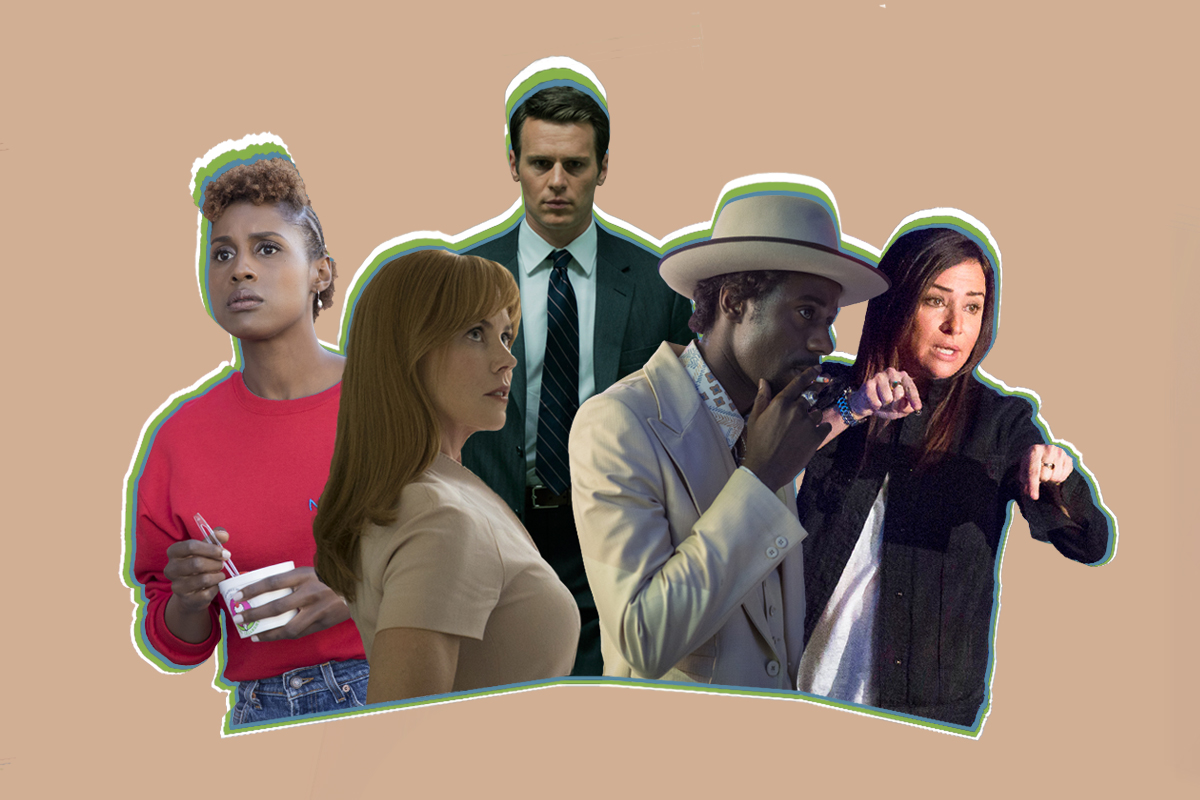
It didn’t take any extra effort to produce a top 10 list in which every series has at least one strong female lead character, powerfully examined in detail. But in a year like 2017, these characters, and the roles they played, felt more vital than ever.
Film actors like Reese Witherspoon and Nicole Kidman asserted their present-day independence from the film industry on the frank and powerful Big Little Lies. On Feud, similar issues resonated on a meta level, with two Oscar winners playing two past Oscar winners who were never given the opportunity to meaningfully move their A-list careers forward. (Imagine what we might have gotten if the real Bette Davis and Joan Crawford could have participated in the 2017 TV landscape.) Issa Rae and Sarah Gadon, both possessed of endlessly mutable faces and the imagination to know just how many emotions those faces could convey, dazzled me on Insecure and on Alias Grace. Carrie Coon emerged as the star The Leftovers had really been about all along. And even pop star Katy Perry used her 96-hour livestream, ostensibly a self-promotional tool, to come into her own as an artist and as a thinking person.
This leads me to my number one show of the year, Better Things. As I have written previously, the second season of Better Things’s greatness seems to emanate more from Pamela Adlon, its sole director and its star, than from the man credited as writer or co-writer on each of its episodes to air in 2017 — Louis C.K. Just weeks ago, the comedian was accused of sexual harassment by five different women. C.K. confirmed that the allegations against him are true. There’s an argument to honor the survivors brave enough to come forward by getting rid of the creator’s work. But doing that with Better Things (not a project headlined by C.K.) erases the work of Adlon, the gifted author who has more, still, to say. And I cannot get over Adlon’s own titanic work in producing a show that so powerfully repudiates the sort of male hegemony C.K. exploited for too long. On Better Things, women rule, but conditionally — men lie in wait to try and exploit, to take credit or take money or take emotional resources. And, ever onward, the family of women Adlon leads pushes forward.
Similarly, I’d wondered about potential bad associations if I’d included Amazon’s I Love Dick, a show whose title is said to have been grist for a lewd pun by former programming head Roy Price, fired after a pattern of harassment. Instead, let that show’s bold vision of the power of rage and of unity reign—and marvel at the fact that the show emerged out of an era that seems to be deconstructing itself before our eyes.
The shows on this list, newly opening up the subjectivity and perspective of half the world, could only exist in a world of limitless possibility—the sort that cable networks and streaming services have come to represent in the television landscape.
I hope this isn’t a blip or a one-off, that these shows give rise to yet more like them, and that this list shines a light on some of them whose work you may not previously have seen, and that next year there’ll be yet more great art celebrating the pain and rage and joy all segments of the population feel to choose from.
10. The Deuce, HBO
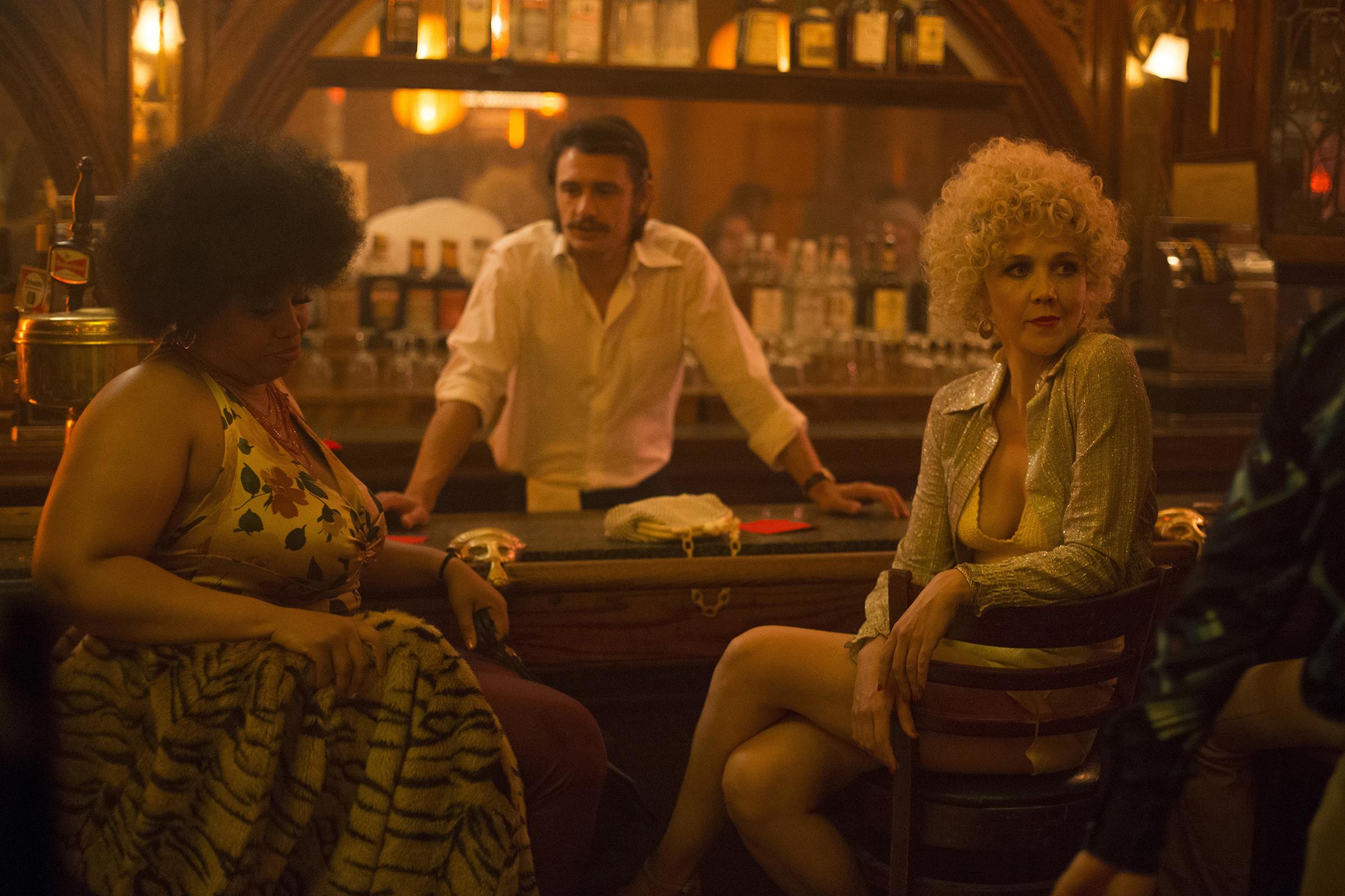
On HBO’s exploration of the birth and evolution of the sex trade in America, sex workers are allowed to be fully human, not just tropes but people with wit and literary tastes and relationships that are transactional but real. Maggie Gyllenhaal, as a worker who dreams of taking control of her circumstances, shines with both a dash of melancholy and with hard-eyed ambition; Dominique Fishback and Pernell Walker bring vividity and thought to their roles too. Elsewhere, barkeeps (including James Franco in a double role) and pimps, gay men feeling newly liberated and vice cops who grudgingly round up escorts all form part of a fascinating mosaic. This is a story about seventies New York, but it also comes to be a look at how desire and the economy have shaped one another, and the fantasy and real lives of Americans.
9. Witness World Wide, YouTube
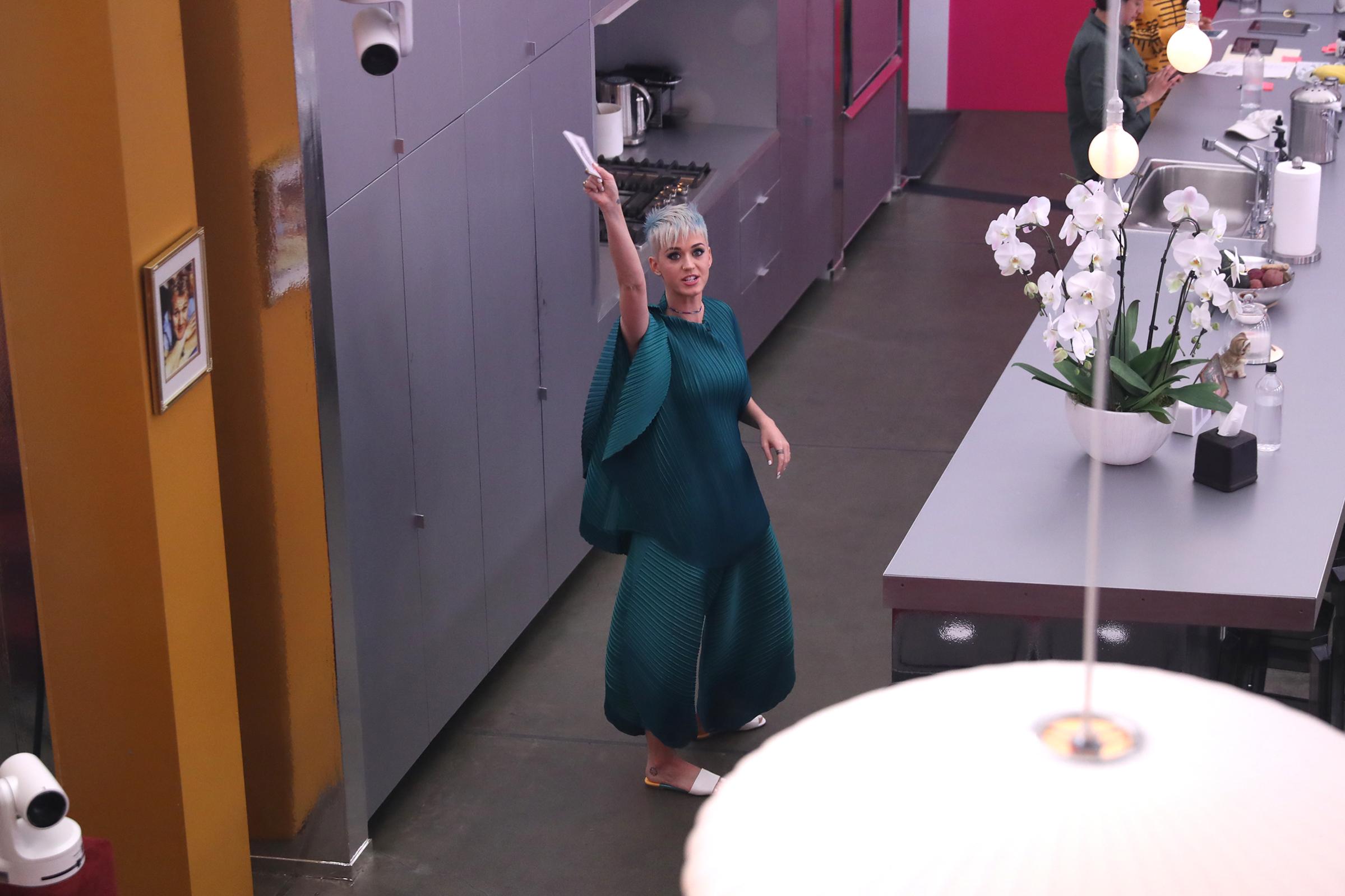
Notionally, Katy Perry’s four-day livestream—in which she lived in a camera-rigged house, eating, sleeping, and declaiming for an online audience—was meant to promote her album Witness. I’m not sure how effective it was in that goal, but Witness World Wide made several provocative, if often unintentional, statements. One was about the expectations placed upon celebrities in the hyper-mediated age. Perry, in an attempt to compete with her class of ante-upping pop singer, opened herself up to a punishing amount of scrutiny.
A star known for outsized costuming and superhuman spectacle abandoning both made for endlessly riveting viewing; it was almost too easy to lose an hour watching her undergo a yoga lesson or eat breakfast. The show was further fascinating for Perry’s evaluating what it means for an artist to be political now. The singer, a Clinton campaign surrogate in 2016, seemed throughout the stream to be downcast and in an unnameable sort of pain, less interested in the music she was putting out than in opportunities to discuss concepts like privilege or her own history of cultural appropriation. Visitor after visitor popped through her house, but a mood of confusion and anxiety haunted the enterprise. Perry’s prolix, at times inarticulate, days-long examination of her own motives and actions was a strange choice for a would-be world-conquering diva, but it made for television perfect for a moment at which so many are trying to find a new narrative frame to understand the world. And the format of live-streaming suited our era, in which getting to know what a celebrity is thinking at any moment is a fiercely defended right.
8. Mindhunter, Netflix
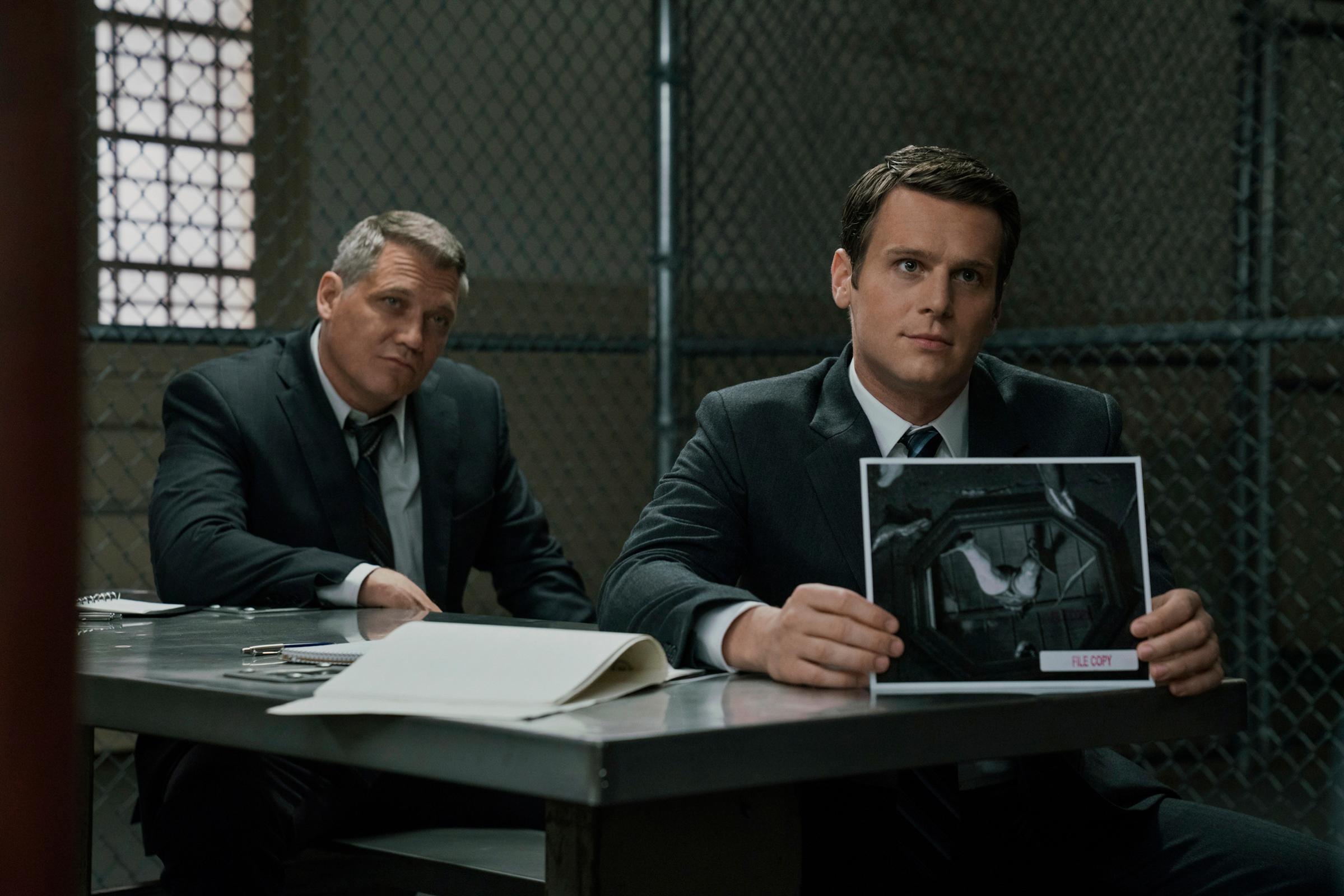
This crime procedural seems at first to be more style than substance—another look into evil by a director, David Fincher, who’s long resided in the shadows. But as it unfolds, this show, depicting the burgeoning use of psychological profiling in the 1970s FBI, builds to something that feels radical for a crime story: A show that respects criminals enough to treat them as humans and not just perps, and finds its dark pleasures in that very humanity. Anna Torv shines as Dr. Wendy Carr, a coolly observant psychologist who aids the early head-shrinking work of two of the Bureau’s agents (Jonathan Groff and Holt McCallany) all while holding part of herself back. More compelling still was Cameron Britton playing the spree killer Edmund Kemper, a pleasant-natured fellow who was so good at getting away with murder that he ended up just turning himself in. Now he opens his psyche, fertile with dark knowledge, to investigators. Watching them travel seventies America to meet him and others like him is as sharply intriguing, and as fun, as procedural TV gets.
7. I Love Dick, Amazon
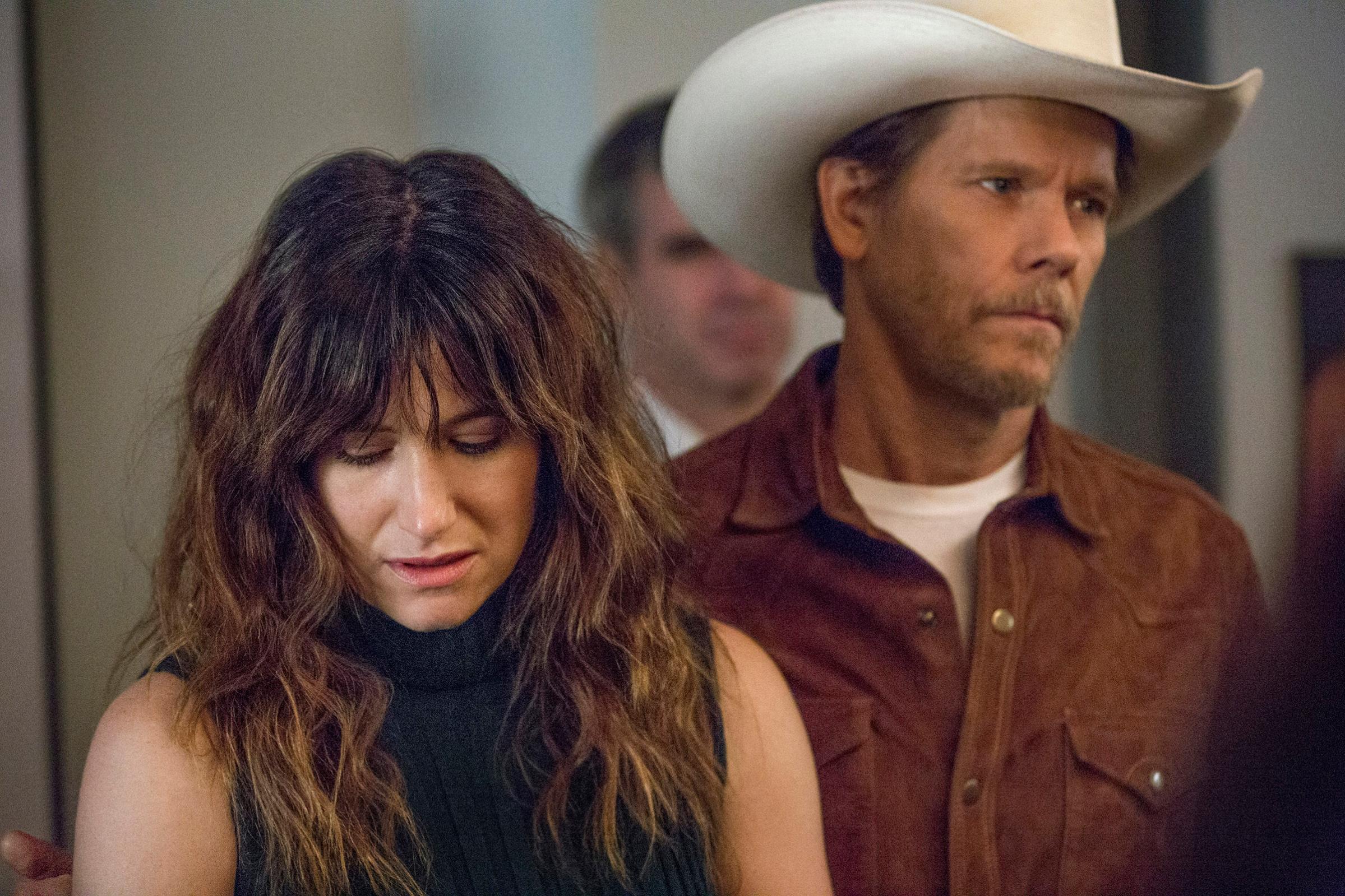
Chris Kraus (Kathryn Hahn) is, in her telling, “straddling 40-ish,” and she’s trapped in a marriage characterized more by inertia and a vague sense of intellectual engagement than by lust or delight. It’s only after meeting Dick (Kevin Bacon), a sculptor of massive, phallic structures, that Chris comes to feel alive again, in no small part because Dick doesn’t seem to respect or like women in general or her in particular. Soon, she’s sending him intense and intensely unwanted letters. The war within—the unresolvable debate between the mind and the body—is staged here inside Chris, and Hahn brilliantly shows us her frustration, and her overriding need. It’s all set against the backdrop of an artists’ colony in Marfa, Tex., and the show gradually expands its aperture to include all sorts of desire. An often-messy and deeply literary show (adapted from the real Kraus’s novel), I Love Dick fascinates as it asks a crucial question: Why do we want what we want?
6. Alias Grace, Netflix
—

The novelist Margaret Atwood was onstage at the Emmys this year thanks to The Handmaid’s Tale, Hulu’s adaptation of her dystopian novel. But Alias Grace was a yet more creatively successful adaptation, taking Atwood’s portrait of an Ontario woman imprisoned for an 1843 murder and probing the case’s edges and its complicated relevance. Grace (Sarah Gadon) begins her time as a servant as a naive and humble immigrant. Interrogated, years into her imprisonment, about her role in killing her master and his mistress, she alternates between moods: arrogant, manipulative, wounded, and strong. Gadon shows us Grace’s acute understanding that she’s always being watched by shifting her way of being from moment to moment, entering a new alias just by shifting her jaw or her gaze. It’s a performance that centers a strikingly directed (by Mary Harron) and elegantly written (by Sarah Polley) miniseries—one whose ambition, like that of a great novel, is surprisingly capacious.
5. Insecure, HBO
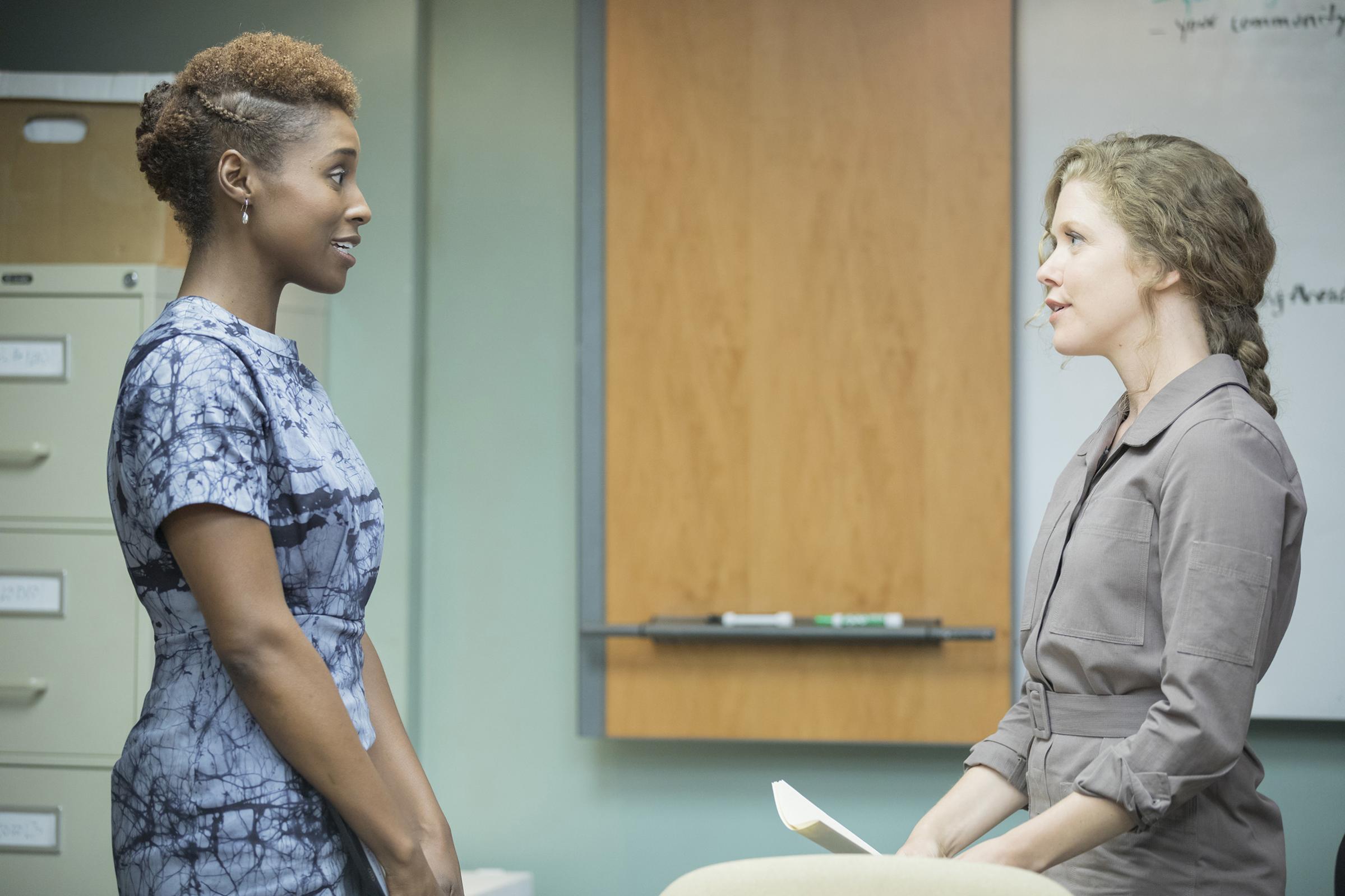
Watching a comedy series click into a higher gear—as, elsewhere on this list, in the case of the year’s top show—is one of television’s greater joys. So it was with Insecure, a show that followed a strong 2016 debut by hitting a whole new level. Insecure follows Issa (actor and show co-creator Issa Rae) as she fumbles through a job she cares about just enough to know she’s falling short and a love life where every good-in-the-moment choice is followed by the gutting realization she’s erred badly. Rae leads a stunningly gifted ensemble, including Yvonne Orji, Natasha Rothwell, and Amanda Seales as pals who only seem to have it together by comparison. Their dramas and their laughs of consolation take place against the backdrop of Inglewood, a city within Los Angeles whose pulsing life and character exists under threat of gentrification. Insecure is at once pause-and-rewind-it hilarious and a show with a great deal on its mind. I can’t wait to see where it goes next.
4. Feud: Bette and Joan, FX
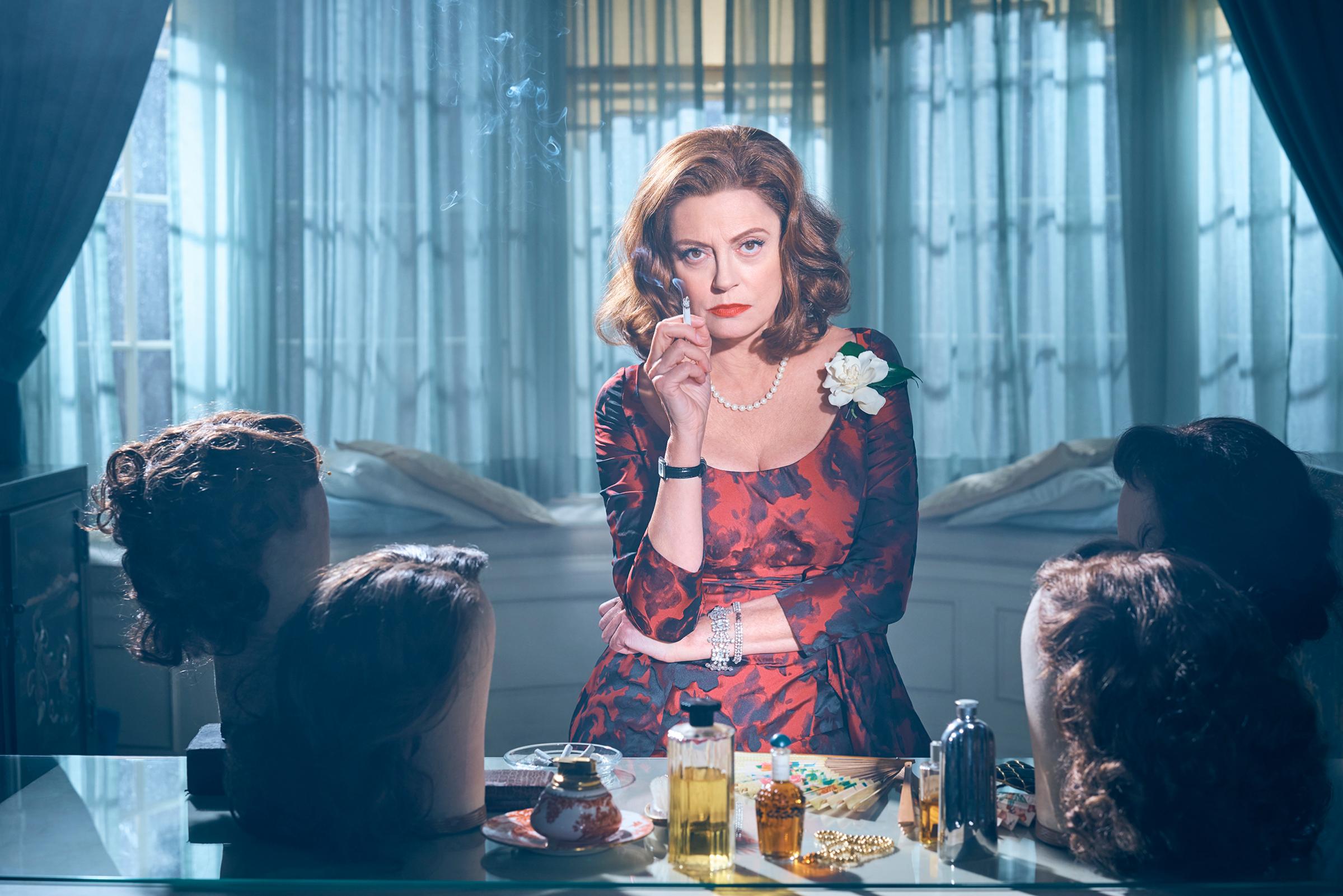
At once a note-perfect recreation of early-1960s movieland glamour and a vividly imaginative scrawl in the margins of pop history, prolific show creator Ryan Murphy’s miniseries assayed the legends, and the lives, of two great stars. Bette Davis (Susan Sarandon) had prestige but little patience for the duties imposed upon a performer; Joan Crawford (Jessica Lange) won her fans through pulpy suffering onscreen and was endlessly willing to play martyr. The pair, both nursing wounds over having been left behind by movies, were bound to butt heads when working together on the film What Ever Happened to Baby Jane?, and Feud shows both a sophisticated yet light touch with character psychology and a deep understanding of the ways in which the men in the entertainment industry exacerbated the sparring to keep both actresses down. By the time it reaches its aching conclusion, the show is so much more than bickering. It’s a Feud for the soul, a powerful statement about Hollywood’s entrenched misogyny that gives both its title icons their humanity back.
3. The Leftovers, HBO
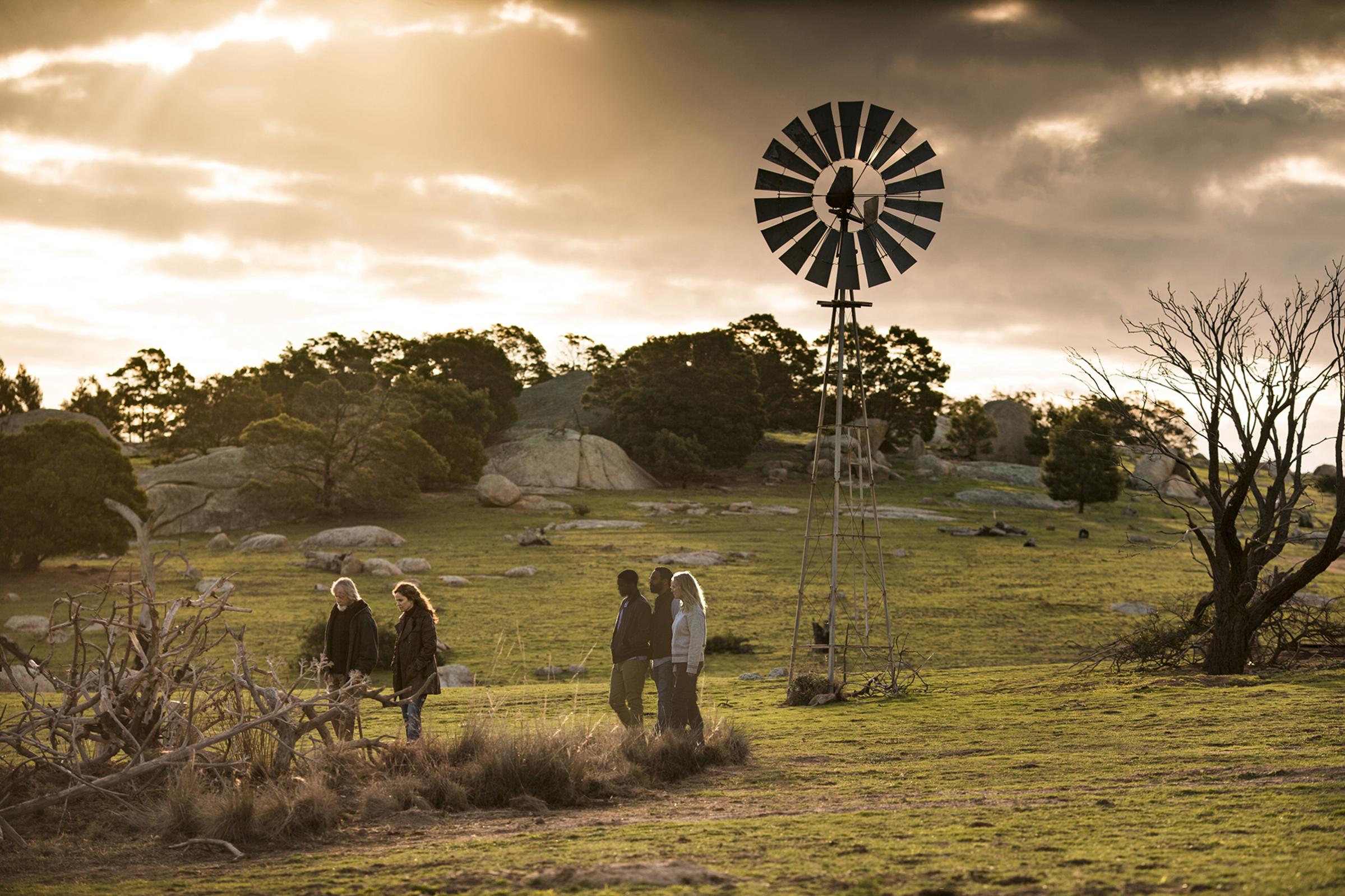
The blooming of this dark drama into one of television’s oddest delights has been for three seasons something remarkable to behold. The Leftovers is premised upon a mysterious event that led to the disappearance of two percent of the world’s population. Its seemingly unyielding wall of grief did yield, to the strange possibilities that a story dealing with both the supernatural and the most ratcheted-up levels of human emotion can reveal. The final season of the show featured more astounding acting than ever by Carrie Coon, playing a woman whose never-abating pain over her missing husband and children still surprises viewers. The show was also imaginatively raucous, less afraid than ever to ask what a world so divergent from ours might look like but rigorously faithful to its sense of that reality. The result, a world gone mad tearing itself apart, ended up suiting this moment better than can have been expected. A show about grief became, among so many other things, a solace.
2. Big Little Lies, HBO
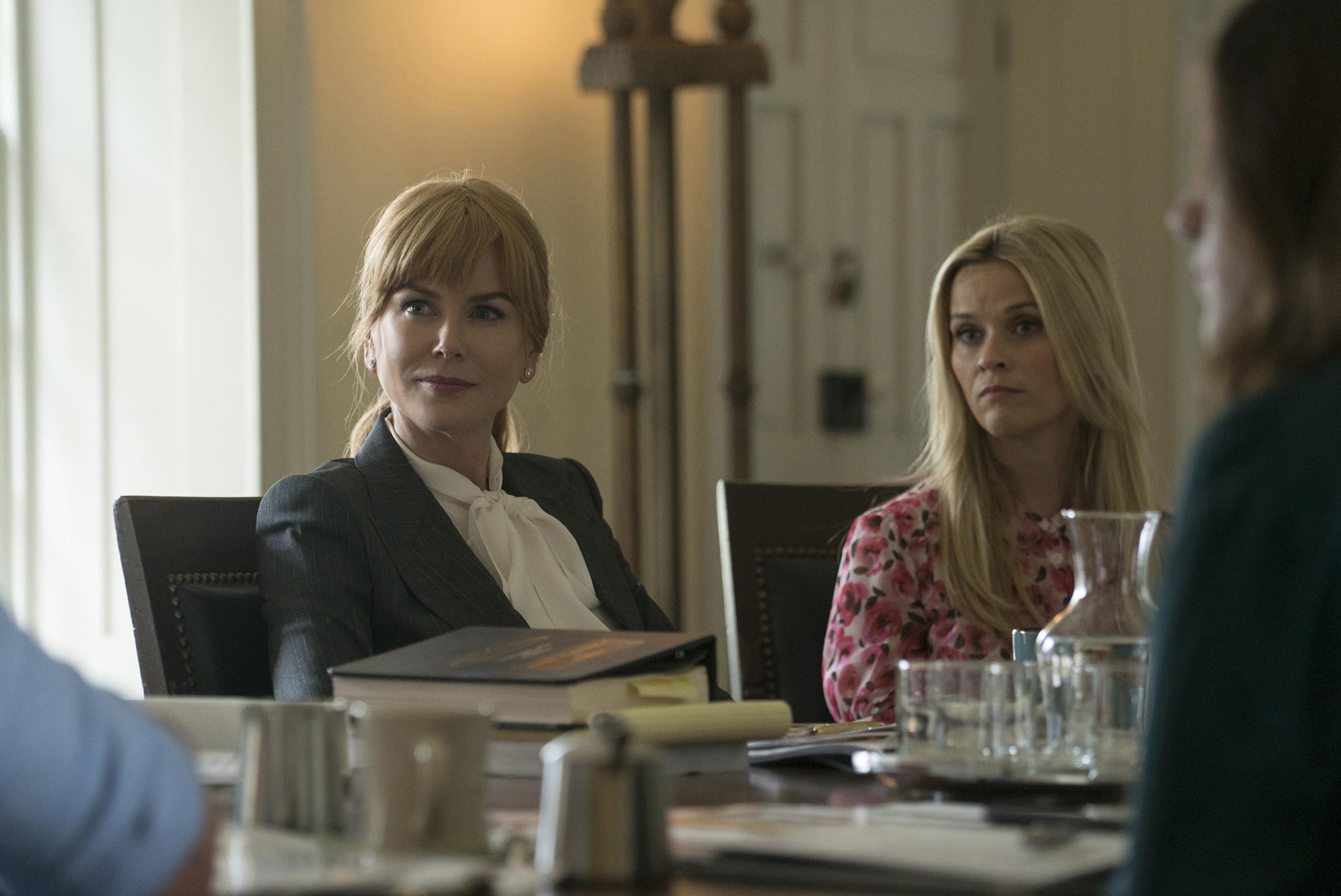
Big Little Lies came into focus slowly, as viewers learned to look past the placid coastal vistas and star power to see a raw look at the dynamics of power. The show asks how that power is taken away from women by the men who purport to love them, and how it can be reclaimed through the radical choice to collaborate rather than compete. That Big Little Lies, which seeded its points slowly through a seven-episode run, deceived some of its audience into expecting a soap opera about beautiful people’s beautiful problems seems rather like the point. Its characters, too, hide behind carapaces of glamour, or industriousness, or idealized motherhood, hiding figurative or literal hurt. As lawyer and spousal-abuse victim Celeste, Nicole Kidman showed the willingness to plumb human darkness that’s long made her one of the world’s most adventurous actresses; elsewhere, a cast including standouts Reese Witherspoon and Laura Dern brought life to emotions near-impossible to talk about. Those emotions include regret and rage. At the show’s satisfying conclusion, they finally come to include the pleasure of helping others, and allowing oneself to be helped too.
1. Better Things, FX
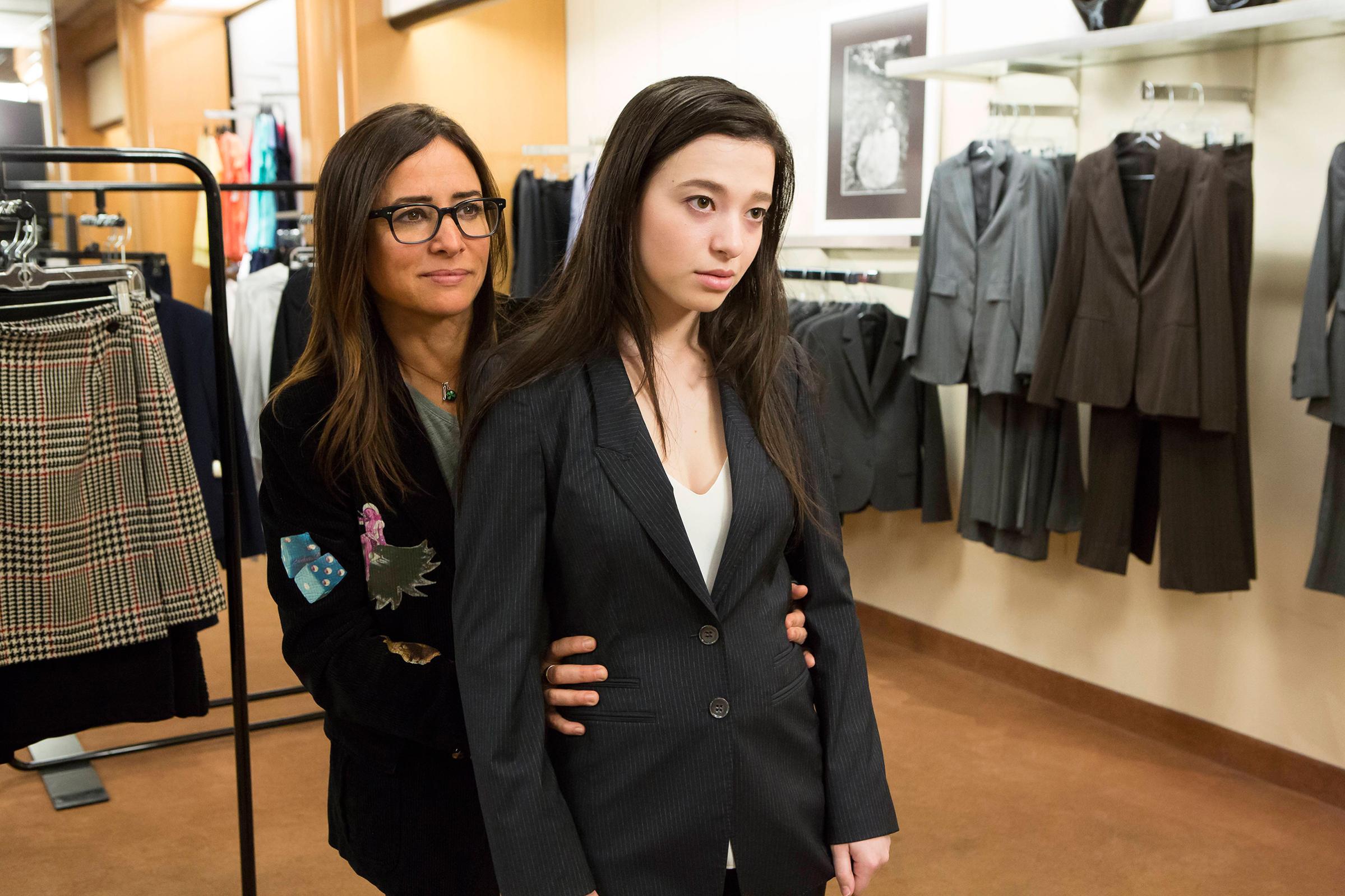
There’s something elemental about Better Things. Its protagonist, Sam (played by Pamela Adlon) is perpetually pushed to the point of extreme vulnerability by her exhaustion: at being a single mother, a woman trying to keep an acting career going after having turned 40, a person. Sometimes she lashes out, as when she verbally takes down the disappointing men in her life in monologues that merge hilarity with real ire, or when she demands her three daughters stage a funeral for her to demonstrate their appreciation—for once. And sometimes, she just sits and thinks. Adlon, who directed every episode of Better Things’s 2017 second season, is mesmerizingly alive onscreen—and being alive is the universal burden that Better Things makes painfully personal. The organizing events of contemporary American life—parenthood, trying to find love, settling into a career in which one’s talents can shine—have for Sam, as for so many, come with no small share of angst. That Adlon illuminates this story, somehow makes it funny, and shoots it through with hope and with love makes Better Things television’s very best show in, and for, a challenging year.
More Must-Reads from TIME
- Cybersecurity Experts Are Sounding the Alarm on DOGE
- Meet the 2025 Women of the Year
- The Harsh Truth About Disability Inclusion
- Why Do More Young Adults Have Cancer?
- Colman Domingo Leads With Radical Love
- How to Get Better at Doing Things Alone
- Michelle Zauner Stares Down the Darkness
Contact us at letters@time.com